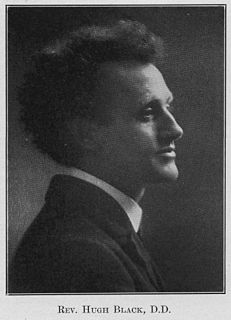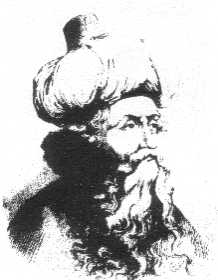A Quote by Golda Meir
There can be no doubt that the average man blames much more than he praises. His instinct is to blame. If he is satisfied he says nothing; if he is not, he most illogically kicks up a row.
Related Quotes
Living with doubt ... is almost always more profitable than living with certainty.
People don't like doubt, so they pay money and give up opportunities to avoid it.
Entrepreneurshi p is largely about living with doubt. If you need reassurance, you're giving up quite a bit to get it. On the other hand, if you can get in the habit of seeking out uncertainty, you'll have developed a great instinct.
The faithful man perceives nothing less than opportunity in difficulties. Flowing through his spine, faith and courage work together: Such a man does not fear losing his life, thus he will risk losing it at times in order to empower it. By this he actually values his life more than the man who fears losing his life. It is much like leaping from a window in order to avoid a fire yet in that most crucial moment knowing that God will appear to catch you.
When I was a fairly precocious young man I became thoroughly impressed with the futility of the hopes and strivings that chase most men restlessly through life. Moreover, I soon discovered the cruelty of that chase, which in those years was much more carefully covered up by hypocrisy and glittering words than is the case today. By the mere existence of his stomach everyone was condemned to participate in that chase. The stomach might well be satisfied by such participation, but not man insofar as he is a thinking and feeling being.
Do not praise your own faith exclusively so that you disbelieve all the rest. If you do this you will miss much good. Nay, you will miss the whole truth of the matter. God, the Omniscient and the Omnipresent, cannot be confined to any one creed, for He says in the Quran, wheresoever ye turn, there is the face of Allah. Everybody praises what he knows. His God is his own creature, and in praising it, he praises himself. Which he would not do if he were just, for his dislike is based on ignorance.
Some of us need to discover that we will not begin to live more fully until we have the courage to do and see and taste and experience much less than usual... And for a man who has let himself be drawn completely out of himself by his activity, nothing is more difficult than to sit still and rest, doing nothing at all. The very act of resting is the hardest and most courageous act he can perform.
Setting aside the vast herd which shows no definable character at all, it seems to me that the minority distinguished by what is commonly regarded as an excess of sin is very much more admirable than the minority distinguished by an excess of virtue. My experience of the world has taught me that the average wine-bibbler is a far better fellow than the average prohibitionist, and that the average rogue is better company than the average poor drudge, and that the worst white-slave trader of my acquaintance is a decenter man than the best vice crusader.
Nothing about his life is more strange to [man] or more unaccountable in purely mundane terms than the stirrings he finds in himself, usually fitful but sometimes overwhelming, to look beyond his animal existence and not be fully satisfied with its immediate substance. He lacks the complacency of the other animals: he is obsessed by pride and guilt, pride at being something more than a mere animal, built at falling short of the high aims he sets for himself.








































